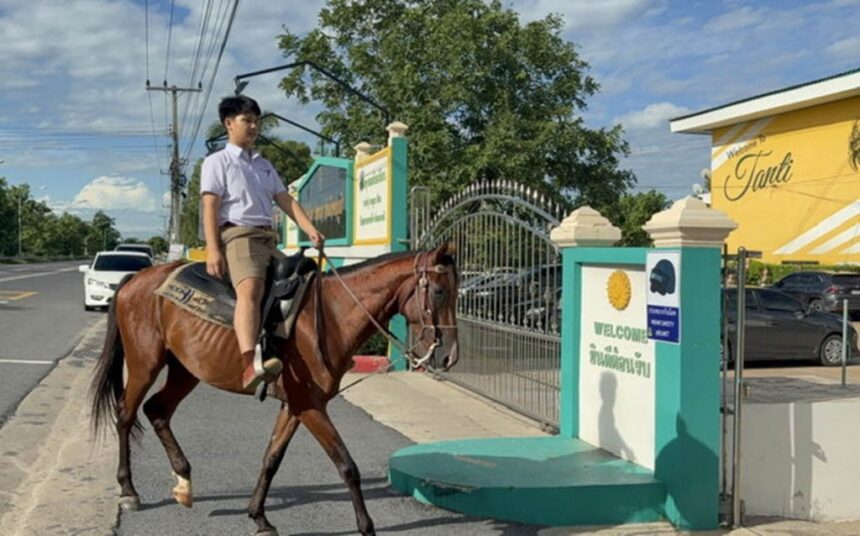BANGKOK – A student in central Thailand has caught the public’s eye and gained notoriety for riding a horse to school every day instead of using the school bus or a motorbike.
Theeraphat Ransaworanan, known as “Ten”, is in Mathayom 4 (Year 10) at Wisetchaichan Tantiwitthayapoom School and has become well-known for showing up each morning on his favourite horse.
Theeraphat’s love for horses began in his early primary school years after he convinced his grandmother to buy him one. He learned to ride quickly and now looks after two horses. His current companion, a three-year-old stallion named “Sunny”, has been taking him to school daily for the past month.
“At first, people stared and I felt shy,” Theeraphat said. “But I love horses, and riding saves me fuel and means I don’t have to use a motorbike. In my free time, I teach horse riding to locals and join traditional parades to earn a bit extra.”
Recently, Ten has started riding to school with Chart (Ratchapong), a Mathayom 1 (Year 7) student who borrows one of Ten’s horses. Chart has worked with horses since Year 4 and shares Ten’s view: “Riding looks cool, saves petrol and I’ve got good at it. I also join temple ordination parades to make some money.”
The school director, Nutchanart Yimchan, spoke positively about their choice. The young student had officially asked for permission to bring his horses to school at the start of the term. He takes care of them every day, first tying them near the director’s home on school grounds and now keeping them at a handier spot on campus.
“This is a special kind of soft power for our school,” Ms Nutchanart said.
Horses have played a part in Thai life for generations, from pulling carriages to taking part in modern riding sports and tourism. Equestrian clubs are widespread, with about 150 across the country, including 25 main ones in Bangkok.
Thailand’s native horses, related to the Przewalski horse, are found in places like Lampang, Chiang Mai and Chiang Rai. These small, tough ponies handle the tropical weather well and are used for work, such as horse-drawn taxis in Lampang, which is a local tradition.
Efforts to protect native Thai horses focus on breeding and teaching, helping to manage health problems and limit cross-breeding.














